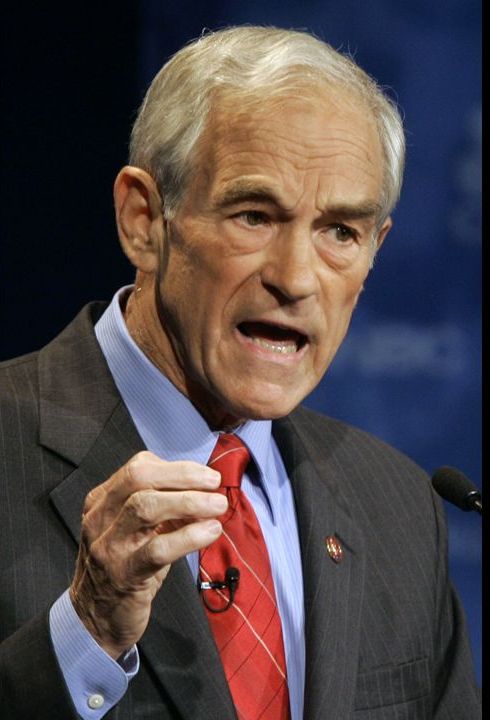Ron Paul Iowa


“This grant to the people of the opportunity for choice is not to be nullified by a state through casting its electoral process in a form which permits a private organization to practice racial discrimination in the election. Constitutional rights would be of little value if they could be thus indirectly denied…. The privilege of membership in a party may be, no concern of a state. But when, as here, that privilege is also the essential qualification for voting in a primary to select nominees for a general election, the state makes the action of the party the action of the state. Ron Paul in Iowa was a sight to see, it is the point in the campaign where his campaign truly proved it was a force to be reckoned with.
At the same time, the Court has held that the freedom to join together in furtherance of common political beliefs to form and join political parties falls squarely within the right of association protected by the First Amendment and the Due Process Clause of the Fourteenth Amendment against interference by the states – and the federal government.
The Supreme Court has often stated that private action, as distinguished from state action, is immune from the equal protection restrictions of the fourteenth amendment. This same reasoning requires a finding of 'federal action' before there is any deprivation of due process in violation of the Fifth Amendment. In either case, it is essential to show that there is 'a sufficiently close nexus between the State and the challenged action of the regulated entity so that the action of the latter may be fairly treated as that of the State itself.'
At the same time, the Court has held that the freedom to join together in furtherance of common political beliefs to form and join political parties falls squarely within the right of association protected by the First Amendment and the Due Process Clause of the Fourteenth Amendment against interference by the states – and the federal government. Ron Paul Iowa 2012 didn't come in first place in the caucus beauty contest, but his supporters were more organized and understood better the caucus process.
The Court has never held if the private entity receives any sort of benefit or service at all from the State, or if it is subject to state regulation in any degree whatever that it is a Governmental Actor. Since state-furnished services include such necessities of life as electricity, water, and police and fire protection, such a holding would utterly emasculate the distinction between private, as distinguished from state, conduct set forth in The Civil Rights Cases, supra, and adhered to in subsequent decisions.
The Court however has also noted that if a State or the Federal Government were to enforce party rules that are constitutionally suspect if engaged in directly by a governmental actor that would be state action. State action, for purposes of the 1st, 5th and 14th Amendments, may emanate from rulings of administrative and regulatory agencies, as well as from legislative or judicial action. Since 1948, the Court has made clear that the application of state sanctions to enforce private rules would violate the Constitution.
The Constitutional right of ballot access is a right of a candidate to run for public office. It is not a right by a political party to the ballot per say or to public funds. That is why the Top 2 Primary is valid.
Because the delegate selection process in those states where the state machinery is used is used to enforce those rules is governmental action and a federal process, the direct aspects of the 1st and 5th Amendments apply. In fact, the United States Supreme Court has ruled It also raises the issue of the Speech and Debate Clause as applied to political parties. The Speech or Debate Clause in the United States Constitution (Article I, Section 6, Clause 1), states that members of both Houses of Congress “shall in all Cases, except Treason, Felony, and Breach of the Peace, be privileged from Arrest during their attendance at the Session of their Respective Houses, and in going to and from the same; and for any Speech or Debate in either House, they shall not be questioned in any other Place.” While it remains to be seen, there could be many more Ron Paul Iowa delegates than anyone in the Republican Party ever predicted.
The United States Supreme Court has held that the intended purpose is to prevent a President or other officials of the executive branch from having members arrested on a pretext to prevent them from voting a certain way or otherwise taking actions with which the President might disagree. For that reason the Clause applies to legislative aides. A similar clause in many state constitutions protects members of state legislatures in the United States. Legislators in non-U.S. jurisdictions may be protected by a similar doctrine of parliamentary immunity.
For that reason, barring very unusual circumstances, no legislator can be prosecuted for how he or she votes in a legislative body.



